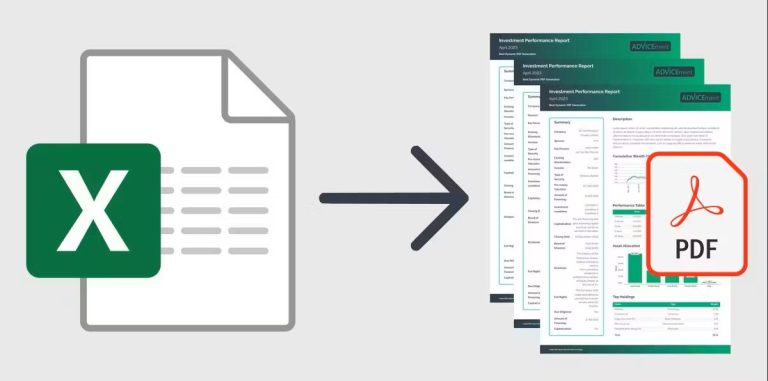Casino Licensing and Regulation: The Power of Compliance

Casino licensing and regulation define the legal and ethical foundation that allows gaming operators to function responsibly. These systems ensure fairness, transparency, and player protection—essential pillars that separate legitimate casino operations from risky or fraudulent ones. Whether in land-based or online gaming, licensing isn’t just paperwork; it’s a stamp of integrity that protects both businesses and players.
Why Licensing and Regulation Are the Backbone of Trust
Casinos thrive on one crucial element—trust. Without it, no jackpot or flashy bonus can keep players engaged. Licensing gives players a sense of safety, knowing that their bets, winnings, and personal data are monitored under strict regulatory supervision.
In countries like the Philippines, the Philippine Amusement and Gaming Corporation (PAGCOR) sets the tone for fair play. Every licensed casino—whether physical or online—must comply with transparent financial reporting, anti-money laundering (AML) laws, and responsible gaming policies. PAGCOR’s manual even specifies that the Philippine Peso (₱) should be the standard reference currency for all gaming transactions, ensuring unified accounting and transparent recordkeeping.
“Licensing is the invisible contract between players and casinos. It says, ‘You can trust us—we play by the rules.’”
For instance, when PAGCOR audits licensed operators, it reviews payout percentages, game fairness, and currency conversions. The same applies to global regulators such as the UK Gambling Commission (UKGC) or Malta Gaming Authority (MGA)—both renowned for strict oversight and player protection.
The Real Meaning of Casino Licensing and Regulation
At its core, casino licensing and regulation involve obtaining permission from a recognized authority to operate gaming activities legally. But it’s more than just getting a permit; it’s a continuous commitment to transparency.
A licensed operator must:
- Maintain secure and verifiable systems for handling money.
- Implement KYC (Know Your Customer) protocols to prevent fraud.
- Follow anti-money laundering frameworks.
- Provide clear, fair terms for bonuses, payouts, and withdrawals.
- Report revenue accurately, usually in the local currency—such as the Philippine Peso for domestic operators.
When these steps are followed, both the government and the players benefit. The government collects fair taxes, while players enjoy protection and a fair chance at winning.
Inside the Philippine Licensing Framework
The Philippines has one of the most established regulatory systems in Asia. PAGCOR serves as both a regulator and operator, managing licensing for casinos and integrated resorts. The process for obtaining a licence isn’t simple—but it’s designed to ensure only credible businesses can enter the market.
The Steps to Legal Operation
- Company Formation – The operator must register a legal entity through the Securities and Exchange Commission (SEC).
- Compliance Documentation – This includes AML policies, gaming system certificates, and financial statements in peso value.
- Regulatory Review – PAGCOR inspects the operator’s infrastructure, games, and data systems for compliance.
- Licence Issuance – Upon approval, the licence is granted with specific operational boundaries (for example, online-only or physical casino).
- Annual Renewal and Audit – Licensees must pay renewal fees and undergo regular inspections.
These stages prevent illicit operations and safeguard player funds. A casino that skips this process, even if it appears legitimate online, puts players’ money at risk.
For example, in 2023, PAGCOR announced stricter measures for offshore gaming operators, suspending those without valid documents. This shows that the system isn’t just a formality—it’s a living, evolving framework protecting public trust.
Why Compliance Matters for Operators and Players
For operators, licensing ensures legitimacy, stability, and partnership opportunities. Banks, payment processors, and software providers only work with licensed businesses. Having that legal backing opens doors to marketing campaigns, collaborations, and long-term growth.
For players, regulation creates a safer environment. Licensed casinos offer verified payout systems, transparent odds, and official dispute resolution channels. When disputes arise, players can appeal to regulators like PAGCOR or MGA, who can investigate and enforce penalties.
Imagine depositing ₱10,000 at an unlicensed site that suddenly vanishes. Without regulatory protection, that money is gone for good. But at a licensed casino, records, audits, and payout tracking provide a safety net for players.
A Tale of Two Operators: FB777 and 55BMW
To understand how regulation impacts credibility, let’s look at two names often seen in the online space—FB777 and 55BMW.
Both have active communities on social media and promote casino-style games. However, a closer look reveals that neither displays an official licence number or regulator link on their public sites. That omission raises red flags.
A truly licensed casino usually displays:
- Its regulator’s name and contact information.
- Its registered licence number (often clickable).
- A clear policy page outlining AML/KYC and responsible gaming practices.
Without those, it’s difficult for players to verify authenticity. Licensed brands such as Okada Manila or City of Dreams Manila, on the other hand, maintain visible PAGCOR credentials, offering full transparency.
The difference is night and day: players are far more likely to trust a casino that shows clear regulatory backing than one that hides its credentials behind flashy promotions.
The Peso Factor: Financial Transparency in Local Currency
Regulators require all Philippine-based casinos to use the Philippine Peso as their reporting and accounting standard. This isn’t just about local pride—it’s about traceability.
When an operator records income, taxes, or player transactions in pesos, the system allows easier auditing and prevents revenue leakage. For online casinos targeting Filipinos, failing to record in pesos may lead to accounting discrepancies or penalties.
“Peso-denominated reporting makes fraud detection faster and strengthens national tax collection,” explains a former PAGCOR compliance officer.
For players, peso-based systems also mean fewer conversion losses and clearer transaction histories. If you win ₱50,000, that value remains consistent—without the confusion of fluctuating exchange rates.
The Financial Framework Behind Casino Licensing
The cost of compliance isn’t small—but it’s what separates long-term operators from short-lived ones. In the Philippines, a casino licence from PAGCOR can reach ₱1 million or more, depending on the business type. Application fees range from ₱300,000 to ₱500,000, while annual renewals often cost nearly the same.
Operators must also pay a 5% franchise tax on gross gaming revenue (GGR) instead of standard corporate income tax. For example, a casino earning ₱100 million in GGR would contribute ₱5 million directly to the national treasury. This structure benefits both sides: the government gains predictable revenue, and the operator enjoys simplified taxation.
Another recurring cost is software certification. Gaming systems must be tested annually by accredited labs such as GLI (Gaming Laboratories International) or iTech Labs to ensure fairness. Certification alone can cost upwards of ₱200,000 per year, depending on the size and scope of the casino’s portfolio.
While these numbers may seem steep, they’re the price of legitimacy. A regulated casino builds trust, reduces operational risks, and attracts serious investors.
Compliance Checklist Every Operator Should Follow
Operating under a strict regulatory framework means adhering to a living checklist that touches every part of the business.
Legal and Operational Essentials
- Register a legal entity under the Securities and Exchange Commission (SEC) for transparency.
- Maintain a clear AML/KYC policy to prevent fraudulent transactions.
- Keep player funds in separate accounts—never mixed with operational budgets.
- Report transactions in Philippine Peso, following the regulator’s accounting standards.
Technical and System Requirements
- Regularly audit software to ensure random number generators (RNG) are certified.
- Encrypt all user data to protect personal and financial information.
- Integrate responsible gaming tools such as self-exclusion and deposit limits.
Marketing and Advertising Controls
- Avoid deceptive promotional campaigns; all bonuses must have transparent terms.
- Advertising materials should include the official licence number.
- Sponsorships or influencer collaborations must be pre-approved by regulators.
“Regulation isn’t the enemy of creativity—it’s the guardian of sustainability.”
Licensed casinos that meet these standards tend to have fewer disputes, better customer satisfaction, and stronger brand reputations over time.
FB777 vs. 55BMW: A Closer Look at Transparency
Both FB777 and 55BMW have gained attention for their strong social media presence, colorful game promotions, and community-driven tournaments. Yet, when transparency is put under the spotlight, their differences—or rather their similarities—become revealing.
Missing Regulatory Disclosures
Neither FB777 nor 55BMW lists a regulator or licence number publicly on their sites. That absence can mean one of two things: either they operate under offshore or informal licensing, or they have yet to secure a valid licence. This creates uncertainty for players regarding accountability and dispute resolution.
By contrast, reputable brands like Okada Manila, Resorts World Manila, and City of Dreams proudly display their PAGCOR credentials and inspection records, assuring guests that every peso spent on-site is legally tracked and protected.
The Player Experience Factor
Players often report that unverified brands offer quick wins or attractive deposit bonuses but may delay withdrawals or require excessive verification later. While there is no confirmed misconduct from FB777 or 55BMW, the lack of a published regulatory framework raises legitimate concerns.
Licensed casinos, on the other hand, must provide a maximum withdrawal timeline, clear dispute procedures, and contact access to PAGCOR for formal complaints.
Financial Handling in Peso
Licensed operators process all local transactions in Philippine Peso (₱), ensuring consistency in taxes and audits. Some unlicensed casinos may process funds through third-party wallets or convert them into digital assets—a move that complicates accountability and increases risk for Filipino players.
When money is handled in pesos under regulation, every transaction becomes traceable, taxable, and transparent.
Player Awareness and Protection
Players are the heart of the gaming ecosystem, and their safety depends largely on the regulatory strength behind each casino.
Signs of a Licensed Casino
- Licence number and regulator link visible at the website footer.
- Responsible gaming tools like betting limits and self-exclusion.
- Transparent payout ratio reports or audit certificates.
- Local customer support that can verify the licence when asked.
Red Flags of Unregulated Operations
- Hidden or vague contact details.
- Bonuses that seem “too good to be true.”
- No proof of licence or unclear jurisdiction.
- Sudden website changes or disappearing social media pages.
Players who gamble in peso with licensed casinos also enjoy easier dispute resolution. In case of non-payment or fraud, regulators can step in and enforce penalties or refunds.
The Future of Casino Licensing and Regulation
The casino industry in Asia—and especially in the Philippines—is evolving. PAGCOR has been tightening its oversight of online operations, particularly the once-lax offshore gaming sector. As digital gambling grows, regulators are now requiring more identity verification, data transparency, and localized peso reporting to close tax gaps.
Globally, regulators are also adopting new technologies:
- Blockchain-based auditing ensures tamper-proof financial logs.
- AI monitoring tools detect suspicious betting patterns.
- Cross-border cooperation helps shut down offshore operators that target domestic players illegally.
This new regulatory age prioritizes long-term integrity over short-term profits, rewarding casinos that commit to transparency and ethical gaming.
Why Regulation Wins Every Time
It’s easy to get caught up in the excitement of jackpots and bonuses, but the truth is simple: regulation protects everyone involved. Licensed casinos provide jobs, boost tourism, and contribute billions of pesos in taxes and tourism revenue. Unlicensed ones, by contrast, threaten both players and the economy.
Players who choose regulated casinos not only secure their winnings but also become part of a responsible gaming culture. And for operators, the message is clear—investing in proper licensing isn’t an expense; it’s an asset.
“In a world where trust is currency, the casino licence is your strongest bankroll.”
Conclusion
Casino licensing and regulation are more than just formalities—they are the heartbeat of the gaming industry’s credibility. From ensuring fairness and financial transparency to protecting players’ rights, these systems create an environment where everyone wins.
By comparing examples like FB777 and 55BMW to well-established, licensed brands, it becomes evident that transparency and regulation are what keep the industry alive and trusted.






